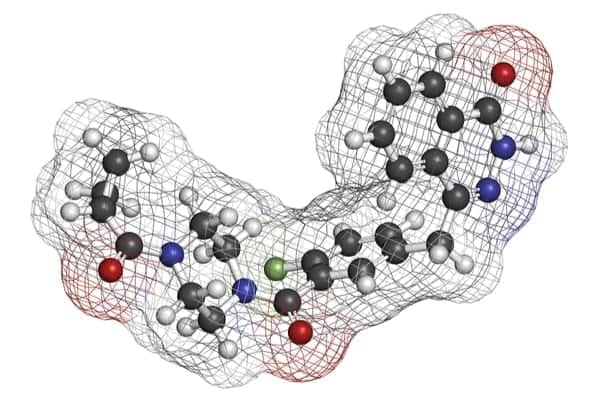A breast cancer drug could be used to fight prostate cancer - here’s how it works


Prostate cancer is the most common cancer in men in the UK, usually developing slowly, with many not noticing any signs for years.
Each year, over 47,000 men in the UK are diagnosed with prostate cancer, causing more than 11,000 deaths, explains Prostate Cancer UK.
Advertisement
Hide AdAdvertisement
Hide AdBut those affected may soon be treated by a drug most commonly given to breast cancer patients.


Olaparib given to prostate cancer patients
The drug Olaparib was initially designed to help treat those with the BRCA mutation - a faulty cancer gene which mainly increases the risk of female breast and ovarian cancers.
However, it is now believed that up to 4,000 men a year with advanced prostate cancer may benefit from this breast cancer drug.
This targeted treatment works by stopping tumour cells from repairing themselves, after the patient has undergone chemotherapy or radiotherapy.
Advertisement
Hide AdAdvertisement
Hide AdNew research
New research has found that this drug works in four in five men with advanced prostate tumours who have the same faulty DNA gene.
The study, which was presented at the world’s biggest annual cancer conference, the American Society of Clinical Oncology, found that Olaparib stopped the disease for an average of eight months in these patients.
A third of men with a BRCA mutation saw their tumours halted for more than a year.
Experts have now said that this drug is set to become the first precision medicine used against prostate tumours.
Advertisement
Hide AdAdvertisement
Hide AdResearch also found that more than half of men with mutations in a gene called PALB2 responded to Olaparib.
Leader of the study, Professor Johann de Bono, from the ICR, said, “Our study is exciting because it shows just how powerful genetic targeting and precision medicine can be.
“We have shown that by testing for DNA repair mutations we can select those patients with a high chance of responding welland for a long time to the targeted drug olaparib.
“Overall between one in three and one in four men with lethal prostate cancer respond – those with DNA repair defects.
Advertisement
Hide AdAdvertisement
Hide Ad“That means 3,000 or 4,000 men a year in the UK would benefit from these drugs in the UK.”
The drug Olaparib was initially designed to help treat those with the BRCA mutation (Photo: Shutterstock)
When will the drug be available for prostate cancer treatment?
Prof de Bono explained that the team of researchers “were delighted to see such strong responses in men with very advanced cancers, where BRCA mutations and other faults in DNA repair genes were present within their tumours.”
In regards to Olaparib being used to treat prostate cancer, Prof de Bono said, “The next phase of the trials is now under way and, if the results look as good as we hope, we should see olaparib starting to reach the clinic for men with prostate cancer in the next couple of years.”
Advertisement
Hide AdAdvertisement
Hide AdMen could also soon be gene tested to see if faulty DNA is a cause of their disease, which is an approach commonly used in breast cancer treatment. This will then enable doctors to choose the most suitable treatment for prostate cancer patients.
‘Huge impact for men with advanced prostate cancer’
Matthew Hobbs, deputy director of research at Prostate Cancer UK, said, “This hugely exciting research shows that Olaparib, originally developed to treat ovarian and breast cancer, could have a huge impact for men with advanced prostate cancer that have specific gene mutations.”
Paul Villanti, from men’s cancer charity the Movember Foundation, said, “It’s very exciting to see results which show how existing treatments such as olaparib could be repurposed to benefit men with the BRCA2 gene mutation.
“We hope this will give clinicians another weapon in their arsenal in the fight against advanced prostate cancer.”
This article was originally published on our sister site, Yorkshire Evening Post.